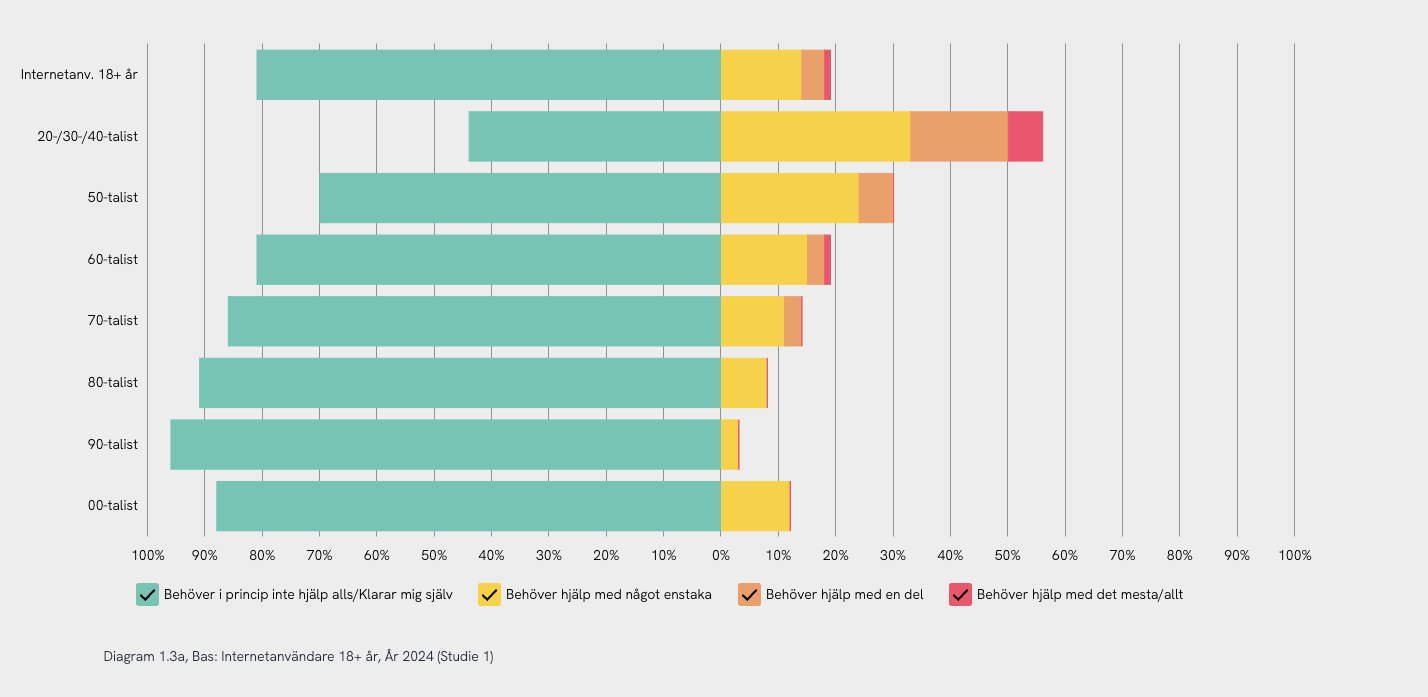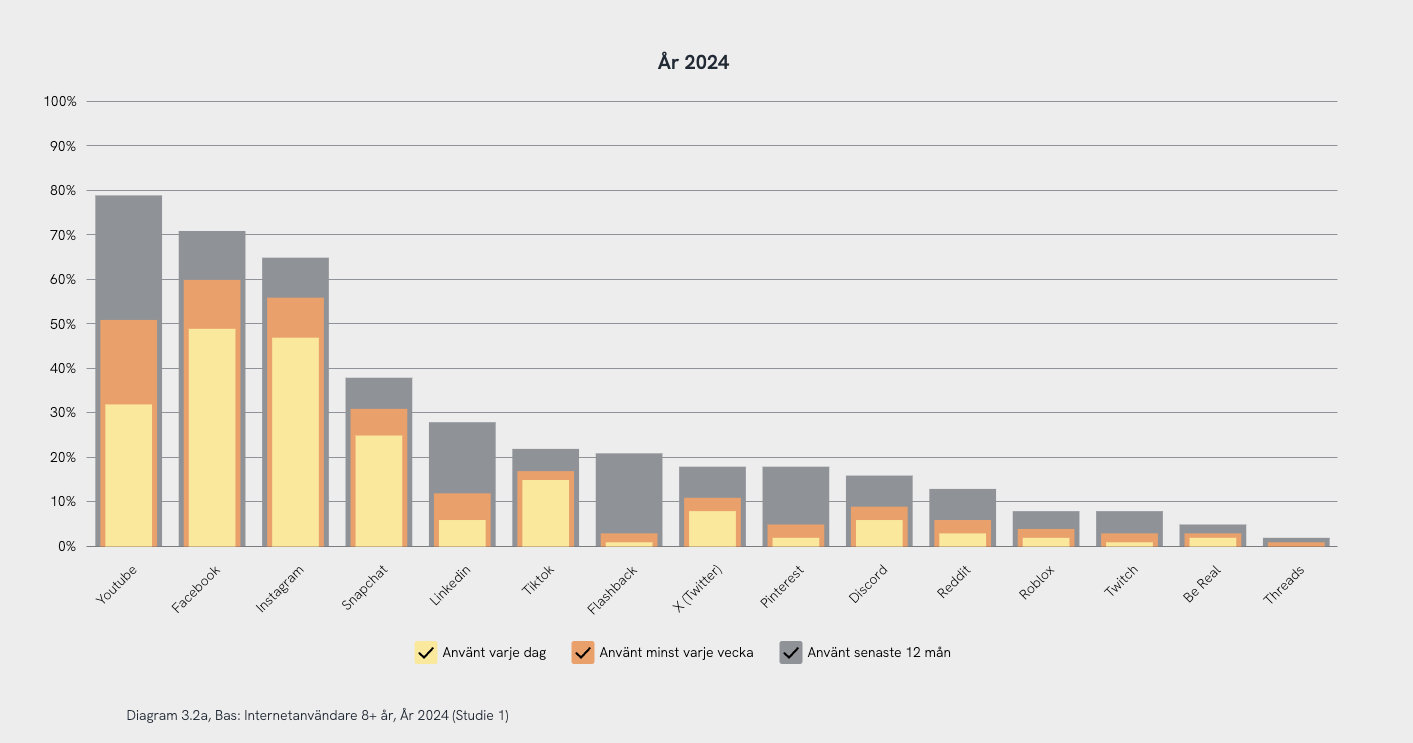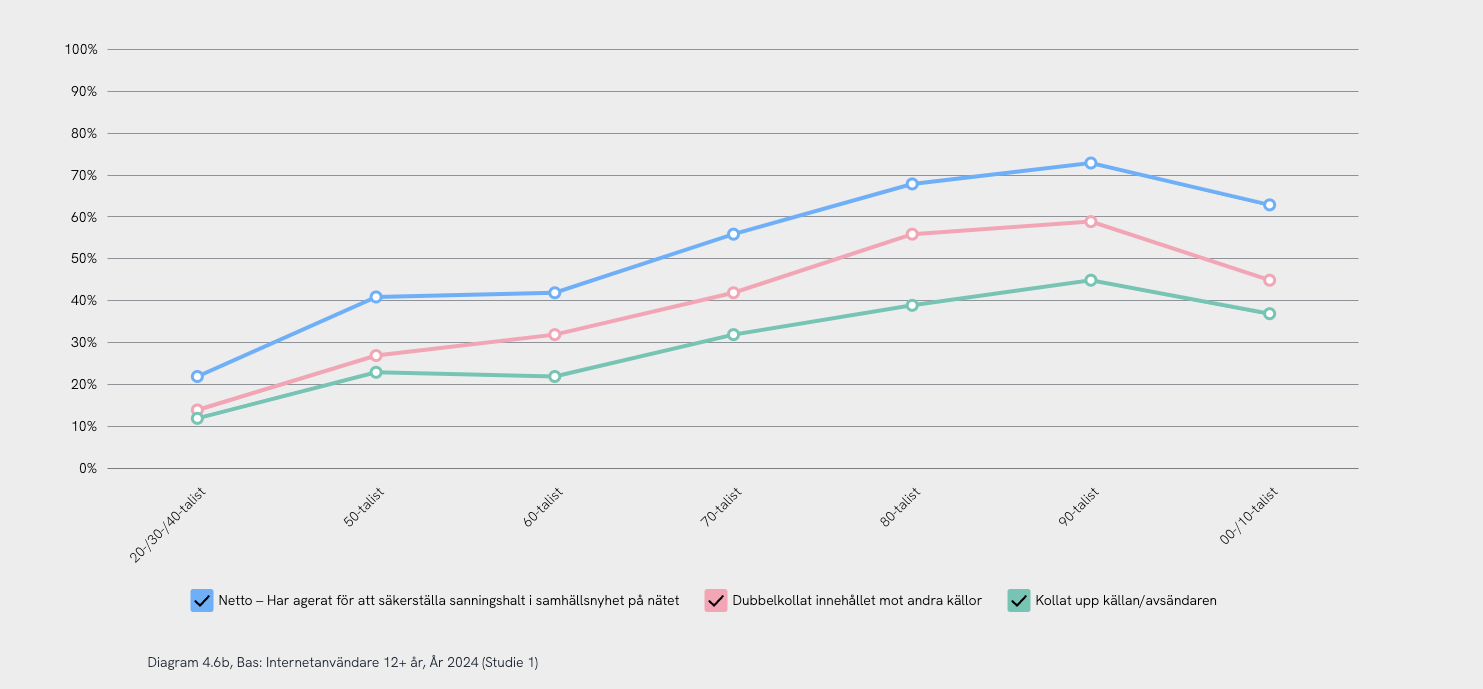This is how Swedes use the internet
Almost all Swedes, a whopping 95 percent, use the internet and a whopping 91 percent do so daily. Those who do not use the internet are found almost exclusively in retirement age, over 65.
Every fifth Swede needs digital help: The number of Swedes, aged 18 or older, who need help with something online is surprisingly a fifth. This need appears in various contexts – from changing phones to managing passwords or using parking apps. The need for help is greater among women than among men, and older people need help more often than younger people. For Internet users over 65, the need for help is four times higher than for those in the age range 18–64. The most independent group are those born in the 90s, where almost no one feels the need for help.
Question: Do you need help doing something online or do you feel you can handle it yourself?

Social media trends
Social media has an incredible spread in Sweden. The three largest platforms are YouTube, Facebook and Instagram. Many use several different platforms in parallel, which means that competitors have difficulty breaking into the market.
Although Facebook still has the largest daily usage, the platform continues to decline in popularity. TikTok, which is particularly popular among younger people, notes a decline among elementary and middle school children. Be Real, which used to be an upstart, declines sharply among young people born in the 21st century. Roblox is very popular among younger children, right after YouTube, and is seeing an increase among teenagers. X, also known as Twitter, has stable user base on par with TikTok.
Question: What social networking sites/social media have you used in the last 12 months?

Social news and source criticism
Over 60 percent of Swedes choose free news media, while just over 30 percent pay for community news online. A large percentage of Swedes use social media to follow nationwide news media and thus gain access to news that they might otherwise have missed.
More than half of Swedes have acted in some way to ensure the veracity of a social news item. Forty percent double-check news against other sources, and thirty percent scrutinize the author or source more closely.
Question: In the last 12 months, have you done anything active to ensure that an online social news story is true?

Positive and negative online
Social media affects well-being: Some Swedes experience social media as time-consuming and a source of negative emotions. Young women are particularly affected and fare worse than men of the same age. Forty percent of Swedes feel that they spend too much time on social media, and 13 percent compare their appearance with others and then feel less attractive. Ten percent often feel left out when they see other people's posts or pictures and compare their lives to others.
Social media promotes socializing: Many Swedes find social media a facilitator for keeping in touch with loved ones, and for making new acquaintances. Many receive valuable advice and tips through various interest groups. The majority (60%) of Swedes think that social media makes it easier to keep in touch with loved ones. Just over 25 percent experience a greater sense of community through friends on social media and 24 percent are part of interest groups where they receive valuable advice and support. In addition, more than 20 percent have gotten to know new people on social media.
Online hate mostly affects young people: The incidence of online hate has almost doubled since 2021 and is relatively unchanged since 2022. Overall, 7 percent have been affected by online hate in the past year. Young men are most vulnerable, where every fourth man born in the 21st century has experienced online hate. Four out of ten Swedes have also seen politicians exposed to online hate.
Online monitoring
Surveillance is seen as a means of improving crime fighting by the majority of Swedes. An overwhelming proportion is in favor of camera surveillance with facial recognition in public places, while only two out of ten Swedes believe it should be banned to protect privacy.
Nine out of ten Swedes believe that the police should have the right to access private conversations online if there is a suspicion of a crime. In addition, six out of ten Swedes, which is more than half, believe that their mobile phones are eavesdropping on them.
AI – artificial intelligence
The percentage of Swedes who use AI tools has not changed noticeably since last year, but those who use AI have found more areas of use. Overall, three out of ten Swedes have tested an AI tool in the last year, with ChatGPT being the most common tool.
There is widespread skepticism towards AI among Swedes. Four in ten are unsure or unwilling to use AI in the future, and this skepticism is even stronger among the elderly, where nearly half do not want to use AI tools at all.
Source: The Internet Foundation




